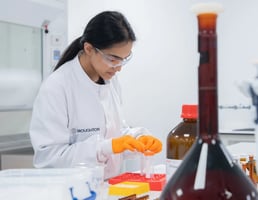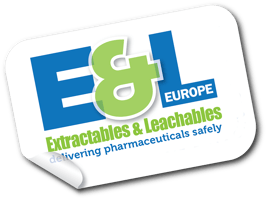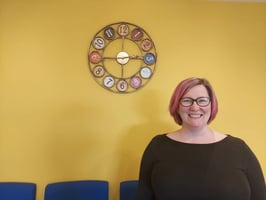The UN International Day of Women and Girls in Science on February 11th is an annual day celebrated across the global scientific community. The day aims to raise awareness about gender disparities in...
Igniting the Passion: A Science Journey from High School to Leadership
Employee Stories
.png)
Mar 6, 2024 | Published by Matthew Feather
Employee Stories
To celebrate National Careers Week, we spoke to Team Leader, Matthew Feather about his career so far.
What initially sparked your interest in science, and how did that passion evolve over time?
This goes right back to GCSE!
This was when I was figuring out what I wanted to do with myself when working through the last years of high school. I was always planning on some kind of college and university education, but I hadn’t yet decided on what I wanted to do as a career.
My science teacher at the time was about as passionate as could be for a high school teacher. She always put together the most interesting lessons, experiments, and field trips. This held my interest well, and the constant involvement led to this being my favorite subject.
The epiphany of wanting to continue into science hit when I received my grades, being A*s. It was something that I both liked and was good at, so it made sense to carry on.
What is your educational background and how has this helped to develop your career?
Originally my sights weren’t so much into Chemistry, but Forensics. I enjoyed the broad aspect of Forensics since it tied together various scientific branches, and I liked the idea of future me working in a Forensics lab. My local college was perfect for this, offering a BTEC in Forensic Science which I went into.
I enjoyed it so much at the time that I then went to university to study Forensic Science at a higher level. Although the realisation that there aren’t many positions open to new graduates and that I’d probably not actually become a forensic scientist came towards the latter of the course, it wasn’t much of a problem to me since I enjoyed it. The broad nature of the course meant that I still had transferrable skills so I could still use what I had learned and do what I enjoyed.
Forensics as a subject turned out to be quite a nice fit for what I do at Broughton. Forensics has a strong culture of procedures, controlled methodology, report writing, etc. which translates well into GMP which also has a similar culture.
What are some of the key projects you have been involved with and what impact have they had on your career?
Although the bulk of my career has revolved around routine QC testing, I’ve been involved in quite a few different projects over the years; transfer projects, validations, one-off jobs, investigations, all sorts come to mind.
Before I get into them, I really must give credit to Broughton’s technical, equipment, and QA teams. They’re absolutely fantastic at what they do, and they’ve supported me throughout all my own projects and investigations.
It’s quite difficult to go into specific projects with detail since it might impact client confidentiality, but the largest and most influential are generally the method transfer projects. These often come with their own unique challenges since there are additional criteria to test the methods against.
These projects in general are what I learned most from, since you have to think about how a method works and what’s happening at each stage to consider if additional considerations might be required.
Has there been any challenges in your working career and if so how did you overcome them?
One of the bigger challenges was during the semi-recent Covid-19 pandemic. In response to the pandemic, the site split into two shift patterns to help maintain distancing between team members.
The pandemic was ongoing when I was working as a scientist, and I took on extra responsibilities since we moved onto a temporary shift pattern to reduce the risk. At the time, the Team Leader of my team was on the opposing shift pattern, and I took on some of her responsibilities to help cover the shift pattern I was on. Learning what I needed to do and how to get things resolved was a challenge back then since it was all new to me. Thankfully, the leadership team was supportive and helped me through the issues I faced.
What advice would you give to aspiring scientists who are just starting their careers?
There’s a lot to learn in a lab which can feel overwhelming when you’re fresh to the environment. Don’t be afraid to ask questions, and make sure you have your instructions and procedures with you when doing your testing.
What is your greatest achievement in your working career?
I’ve just recently been promoted to Team Leader, which is my 2nd promotion at Broughton.
This is something I’ve been working towards over the past 2 years and Broughton has helped in preparing me for the position. Some examples of this are offering additional responsibilities like People Leadership and working closely with my Team Leader at the time, so I had a good understanding of their day-to-day role and what this involved.
For more information on working at Broughton and how you can pursue your interest in Science, head to our Careers page


